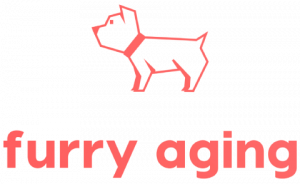
Food plays an important role in our senior dogs’ well-being. At this stage of life, we will need to make some adjustments in their diet to ensure they are receiving the right amount of nutrients. Furthermore, supplements like joint support, immunity boosters, and antioxidants help to manage particular conditions. For personalized guidance, consult an animal nutritionist to ensure your furry friend’s healthy and happy aging journey.
With the advancement of veterinary medicine and animal nutrition, we see more and more elderly dogs. Estimates indicate that the senior dog population represents 1/3 of the total dog population in the world. Did you know that?
In general, the life expectancy of dogs depends on the breed, size, and lifelong conditions, such as adequate nutrition, veterinary checkups, vaccines, and environmental conditions. That’s why it’s important to give proper care throughout your friend’s life.
If your dog is already elderly, you can refer to the article Senior Dog 101: Our Curated Care Guide for Senior Dogs and learn everything you can do to provide the best quality of life for your old little paw.
In this article, we discuss the signs of aging in dogs and how nutrition and supplements can help manage them, promoting healthy aging.
When is a Dog Considered a Senior?
Many dog owners wonder when their dog can be considered old. Generally, large breeds are considered senile from 5 years old, medium breeds from 7 years old, and small breeds from 10 years old. However, this can vary from dog to dog. For example, the oldest dog in the world, Bobi, was registered in February 2023 in the Guinness World Records at 31 years old. Can you imagine that!!
Since life expectancy can vary greatly between dogs, see how you can identify the main signs that the senile phase is starting. I’ll talk about them in the next topic.
Main Signs that Your Dog is Getting Old
As a dog gets old, there are some physiological changes associated with advancing age, just like humans. Those changes are mainly related to nutrition and chronic diseases, such as loss of muscle mass.
The general health condition and nutritional status of senior dogs depend on many factors. It is a dynamic process and needs continual reassessment to maintain your furry friend’s integrity and well-being as much as possible.
If you have a puppy in the senile phase or you’re preparing for when that time comes, here are some aspects to look out for that indicate aging is coming:
- White fur: Just as we naturally lose the color of our hair as we age, it’s no different with dogs. Their fur can become white especially on the muzzle, around the eyes, and paws.
- Thick paws: The pads of the paws tend to get rougher, and there is a thickening of the tissue. It is a natural process, and there is no reason to worry.
- Difficulty moving: With advancing age, there is a natural decrease in collagen production, which makes the joints “harder”. There is also a more consistent loss of muscle mass, which makes the body more fragile.
- Disorientation: There is a loss of balance related to reduced reflexes and reduced ability to see.
- Lethargy: It is common that over the years dogs become less active and start to sleep more. It is essential to maintain cognitive and sensory stimuli in the environment.
- Changes in behavior: In addition to lethargy, other changes in behavior can be observed, such as excessive barking, urinating and defecating in inappropriate places, and irritability.
When observing any sign, rest assured, it is a natural process and you can adapt your handling and routine to delay and reduce the impacts of senility.
Proper Nutrition for Senior Dogs
At this stage, dogs become more prone to nutritional problems such as excesses and lack of nutrients. One of the biggest problems that affect dogs, both young and old, is overweight or obesity. You may have noticed that the number of chubby dogs has increased considerably and, although they look cute, obesity is a very serious disease. And not necessarily because they are overweight means there are no nutritional deficiencies.
In addition, overweight dogs have a shorter life expectancy and are more prone to diseases such as arthritis, which compromise locomotion and affect the dog’s general well-being.
As we have mentioned, elderly dogs tend to be lazier and have more difficulty getting around, and comorbidities such as obesity only amplify these situations. Therefore, follow-up with an animal nutritionist is essential at this stage, as it will carry out an ongoing assessment and make adjustments as necessary.
What Science is Saying About Senior Dog Nutrition
According to a study carried out with senior dogs in 2021, it was found that there is a reduction in energy requirements. That means an old dog needs to eat less than in the adult stage. Therefore, we recommend that you seek guidance from your dog’s nutritionist when it reaches the senile stage, or when you notice any change in eating behavior.
The same study pointed out a change in the profile of water intake with a decrease in thirst, which may be related to mobility conditions that limit access to water and the incidence of water loss due to subclinical conditions (urinary problems). All of these changes can generate a dehydration frame. However, elderly dogs need to drink the same amount of water, so we suggest making more water bowls available and checking if your furry is drinking water.
Also, it has been found that protein requirements increase due to impaired protein synthesis and some supplements become essential to help prevent or treat some health problems. This explains the usual issue of muscle loss in senior dogs.
All these changes should be reviewed by an animal nutritionist. The recommendations will include the correct dietary management that should be followed by owners of elderly dogs, including monitoring water intake, the amount and frequency of feeding, and a monitored food plan.
Best Food for Senior Dogs
The amount of food brands for geriatric dogs gradually increases on market shelves, which leads to the belief that elderly dogs need a special diet, right? However, while senile dogs have some nutritional particularities as we have seen, there is no different nutritional recommendation for this stage of life.
The Association of American Feed Control Officials (AAFCO), the body that regulates nutritional guidelines of animals, only establishes criteria for dogs in growth, reproduction, and adults. Therefore, the foods available on the market for senile dogs vary in their composition, with many benefiting senile dogs from the addition of nutraceuticals, which are active compounds from plants with therapeutic potential, and additives that improve intestinal health.
While no single food is the best for senile dogs, a professional can guide the ideal food for your pet’s specific needs to promote longevity.
Senior Dog Supplements
Supplements for senior dogs work as essential support in the prevention and treatment of some diseases that occur with advancing age. There is a wide variety of supplements for pets, which can leave pet owners confused about which ones to buy their pets. If that’s your case, don’t worry, We’ve listed the main supplements for senior dogs and their functionality, so you can choose the best option that fits your puppy’s profile.
Joint supplements:
Immunity supplements:
Immunity supplements are formulated to strengthen the immune system. They can include in their composition some superfoods such as spirulina, propolis, ginger, and saffron. They are indicated for dogs of all ages, but mainly seniors who are more susceptible to falls in immunity.
Supplements for gut health:
These products have prebiotics that improve intestinal flow, probiotics that help maintain a healthy microbiota, and some have digestive enzymes that facilitate the absorption of nutrients from digestion. It is suitable for dogs of all ages, especially elderly dogs that have gastrointestinal problems such as gases and poor digestion.
Antioxidant supplements:
They have in their formulation several assets with antioxidant potential, such as green tea extract, blueberries, and cranberries, among others. For elderly dogs, antioxidants help protect cognitive function, in addition to corresponding to improvements in pain and inflammation.
Omega-3:
For senile dogs, omega-3 is an excellent supplement, as it helps in inflammatory processes and improves the quality of skin and fur.
If you are in doubt as to the best supplement for your dog’s condition, do not hesitate to contact an animal nutritionist.
Final Thoughts
If your dog is getting old, you should look for a veterinarian so that he can advise you on what is to come, but stay calm, the signs will appear little by little. In terms of nutrition, the first sign that usually appears is a decrease in appetite. But don’t worry, the Furry Aging team is here to answer your questions and help you in the process of growing old with your dog. And you’re having the pleasure of growing old with your best friend, enjoy every second with him.
Related Articles
Bibliographic Research
Written by Brenda Vitorino, BSc in Animal Science. Fact checked by Jessica D’avila, Animal Nutritionist.
Recent Posts
Amazon's Top Black Friday and Cyber Monday Deals for 2024: Dog Products Edition
The holiday shopping season has officially started and Amazon has already released some incredible deals on pet products for Black Friday and Cyber Monday 2024. Here is our curated list of the...
As someone who boards dogs as a side gig, I am used to seeing many pet trackers and smart collars these days. These devices have become a must-have tool for pet owners (especially when trusting their...
